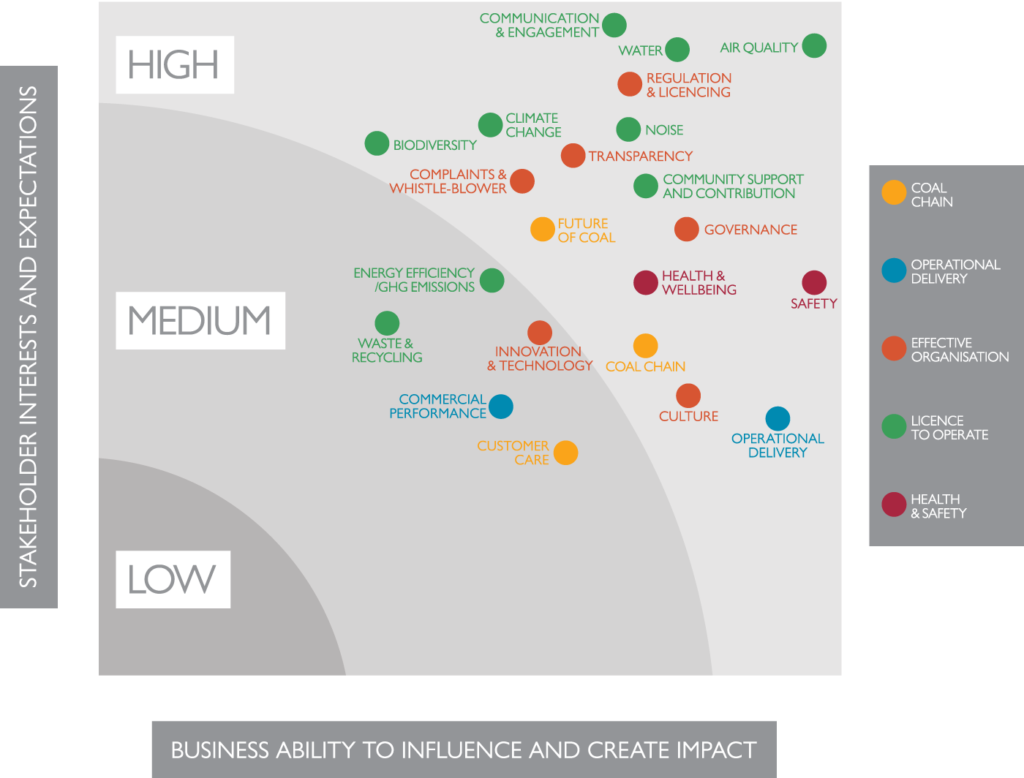Foreword
Port Waratah operates in an industry subject to significant macro trends that could impact our business over time. A prudent response to this complex sustainability challenge requires Management to continue to evolve the mature systems and approaches in the business. In 2023, much like 2022, the challenges and opportunities faced by Management demanded attention to both shorter term operational matters and longer term positioning, again highlighting the value of having a clear operating strategy and commitment to excellent people leadership.
In an important step forward, Port Waratah have made significant progress strengthening relationships with First Nations Peoples as a component of its stakeholder engagement strategy.
The longer-term horizon is characterised by unpredictability. As we plan for a continued role in meeting global energy demands while the energy transition progresses, we recognise there may be material change in demand for our services over time. From the stable base provided by our operating strategy, Port Waratah aims to adapt as these challenges evolve while supporting our people and customers.

Welcome
With our annual Sustainability Report, Port Waratah aims to provide our many stakeholders with an overview of performance as well as insight into the opportunities, risks and challenges we face as an organisation.
One of the highlights of 2023 is the significant improvement we recorded in safety performance. The 2023 all-injury frequency rate of 1.88 is our best performance since 2015. Our objective is to do all our work without impact on the health and safety of anyone in our operations and the environment. With 2023 being the first year of implementation of our Climate Action Plan, we also report on our emissions profile and energy efficiency effort this year.
Operationally, total terminal throughput of 95.5 million tonnes was an increase from 91.9 million tonnes exported in 2022. Our operational performance continued to be strong, with excellent reliability, high loading rates and low vessel queues benefiting our customers.

Being a sustainable business
Port Waratah Coal Services Limited is an unlisted public company with headquarters in Kooragang NSW, Australia. We have been operating since 1976, delivering an efficient, high-quality and reliable service to local coal producers. Port Waratah plays a vital role in the Hunter Valley Coal Chain, enabling our customers to reach a global market. We stockpile, blend and load coal for export in the Port of Newcastle, and own and manage export terminals at Kooragang and Carrington, both of which operate 24/7. The terminals have a combined annual capacity of 145 million tonnes.
We build strong relationships and work cooperatively with our people, our customers and our community, continuously improving our performance and contributing to a more sustainable society.
Materiality
Materiality is essential to the quality of our sustainability management and reporting. It ensures we implement appropriate and relevant systems and provide timely and transparent information about the topics important to our business, community and other stakeholders.
We conducted a materiality assessment in 2020 and the topics identified continue to reflect in our significant activities, relationships, and economic, environmental and social impacts. Stakeholder engagement with our workforce, customers, business partners, suppliers and community confirmed the relevance of these topics, with some feedback also demonstrating additional high interest in climate change and the future of coal. We intend to formally review our materiality assessment in 2024.

How we manage our impacts and contribute to the SDGs
Port Waratah is committed to contributing to the achievement of the UN Sustainable Development Goals (SDGs). We address the challenges and targets in the context of our own business and operational environment. We do this by integrating sustainability into our business as usual and by implementing specific strategies, systems, programmes and initiatives.
The achievement of the SDGs requires collaboration and partnership with other local businesses and services, and across Industry. Port Waratah is a member of Hunter Region SDG Memorandum of Understanding and Taskforce, and Sustainable Procurement Subcommittee, working collaboratively to grow and improve the implementation of SDGs within the Hunter Region.
Reports and GRI Standards
Our Sustainability and Sustainable Development Reports describe our management approach to sustainability and our performance for each calendar year, structured around our five key business drivers. We prepare our Sustainable Development Reports in accordance with the Global Reporting Initiative’s (GRI) Standard Disclosures from the GRI Sustainability Reporting Guidelines. All Standard Disclosures that have been met in each report are described in the GRI Content Index for the corresponding year.
